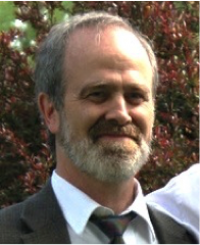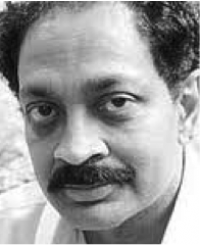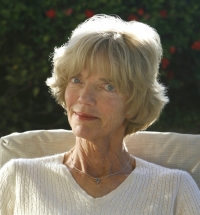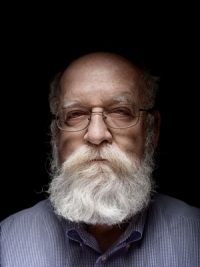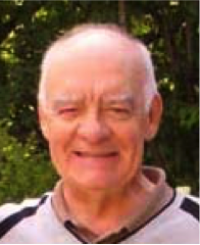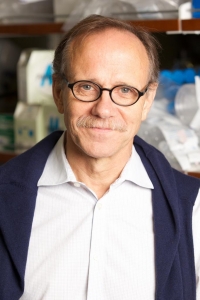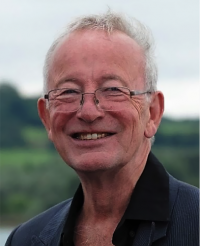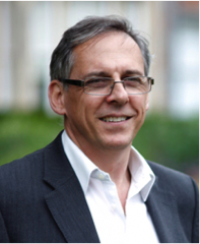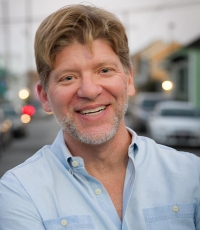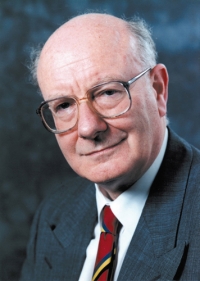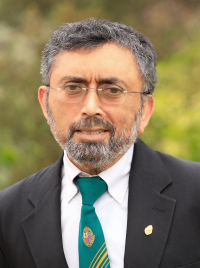Is the Human Mind Unique?
Biographical Sketches: Co-Chairs
University of California, Berkeley
Terrence Deacon is chair of the Department of Anthropology at UC Berkeley and a researcher at the Helen Wills Neuroscience Institute. He received his PhD from Harvard University in 1984 and has served on the faculty of Harvard University, Harvard Medical School, Boston University, and UC Berkeley. He is a biological anthropologist known for research on human brain evolution, language function, cross-species fetal neural transplantation, and complex systems approaches to evolutionary theory. His 1997 book, The Symbolic Species: The Co-evolution of Language and the Brain (W. W. Norton & Company), was awarded the prestigious I. J. Staley Prize and his most recent book, Incomplete Nature: How Mind Emerged from Matter (W. W. Norton & Company), was published in 2012.
University of California, San Diego
V.S. Ramachandran is Director of the Center for Brain and Cognition and a distinguished professor with the psychology and neurosciences programs at UC San Diego, as well as an adjunct professor of biology at the Salk Institute. Ramachandran initially trained as a doctor from Stanley Medical College, India, and subsequently obtained a Ph.D. from Trinity College at the University of Cambridge. Ramachandran’s early work was on visual perception, but he is best known for his experiments in behavioral neurology, which despite their apparent simplicity, have had a profound impact on the way we think about the brain. Ramachandran has published over 180 papers in scientific journals (including five invited review articles in Scientific American). His awards and honors include fellowships at All Souls College, Oxford and Stanford University; The Henry Dale medal awarded by the Royal Institution, which also elected him honorary life member; the CU Ariens Kappers medal from the Royal Nederlands Academy of Sciences; and awarded India's third highest honorific title "Padma Bhushan" by the president of India. He gave the annul BBC Reith Lectures in the UK and the Gifford Lectures in Glasgow. In 2011, TIME Magazine named him one of the 100 most influential people in the world.
Biographical Sketches: Speakers
University of California, San Diego
Patricia Smith Churchland is a neurophilosopher, now retired from the University of California San Diego, and an Adjunct Professor at the Salk Institute. She focuses on how discoveries in neuroscience impact traditional ideas about ourselves and how philosophers can usefully collaborate with scientists. She wrote the pioneering book, Neurophilosophy (MIT Press, 1986), and is co-author with T. J. Sejnowski of The Computational Brain (MIT Press, 1992). Her current work focuses on morality and the social brain: Braintrust: What Neuroscience tells us about Morality (Princeton University Press, 2011) and Conscience: The Origins of Moral Intuition (W. W. Norton & Company, 2019). She won a MacArthur Prize in 1991, the Rossi Prize for neuroscience in 2008, and the Prose Prize for science for Braintrust.
Extended interviews can be found on YouTube, The Science Network, and on Serious Science.
Tufts University
Daniel Dennett (1942-2024) was the Fletcher Professor of Philosophy and Co-director of the Center for Cognitive Studies at Tufts University. He was the author of many books, including Consciousness Explained (Back Bay Books, 1992), Darwin’s Dangerous Idea (Simon and Schuster, 1995), and Breaking the Spell (Penguin, 2006). He co-authored, with Matthew Hurley and Reginald Adams, of Inside Jokes: Using Humor to Reverse-Engineer the Mind (The MIT Press, 2011). More recent co-authored articles include McKay and Dennett, “The Evolution of Misbelief,” in Behavioral and Brain Sciences, 2009, and Cohen and Dennett, “Consciousness Cannot Be Separated From Function,” in Trends in Cognitive Science, 2011. He was the 2012 recipient of the Erasmus Prize, presented at the Royal Palace in Amsterdam by Crown Prince William, honoring his work in explaining science to the general public.
Queen's University
Merlin Donald is an emeritus professor of psychology at Queen's University (Kingston, Ontario, Canada). A cognitive neuroscientist with a background in philosophy, he is the author of many scientific papers, and two influential books: Origins of the Modern Mind: Three Stages in the Evolution of Culture and Cognition (1991), and A Mind So Rare: The Evolution of Human Consciousness (2001). He is a Fellow of the Canadian Psychological Association, the Royal Society of Canada, and the World Academy of Art and Science. Donald’s theoretical work on human cognitive evolution bridges several disciplines in the sciences, social sciences and humanities. His central thesis is that human beings have evolved a completely novel cognitive strategy: brain-culture symbiosis, and distributed cognition. As a consequence of this evolutionary strategy, the human brain cannot realize its design potential unless it is immersed in a distributed communication network, that is, a culture. The human brain is, quite literally, specifically adapted for functioning in a distributed cognitive system.
Salk Institute for Biological Studies
Fred H. Gage is a Professor in the Laboratory of Genetics and the past President (2018-2023) of the Salk Institute. He is an Adjunct Professor at UC San Diego, and emeritus Co-Director of CARTA. Dr. Gage concentrates on the adult central nervous system and unexpected plasticity and adaptability to environmental stimulation that remains throughout the life of all mammals. His work may lead to methods of replacing or enhancing brain and spinal cord tissues lost or damaged due to Neurodegenerative disease or trauma. Gage's lab showed that, contrary to accepted dogma, human beings are capable of growing new nerve cells throughout life. Small populations of immature nerve cells are found in the adult mammalian brain, a process called Neurogenesis. He is working to understand how these cells can be induced to become mature functioning nerve cells in the adult brain and spinal cord. They showed that environmental enrichment and physical exercise can enhance the growth of new brain cells and they are studying the underlying cellular and molecular mechanisms that may be harnessed to repair the aged and damaged brain and spinal cord. Gage is a member of the National Academy of Science and the Institute of Medicine.
Senior Member, Darwin College, University of Cambridge
Nicholas Humphrey is a theoretical psychologist who has migrated from neurophysiology, through animal behaviour to evolutionary psychology and the study of consciousness. He did research on mountain gorillas with Dian Fossey in Rwanda, he was the first to demonstrate the existence of “blindsight” after brain damage in monkeys, he proposed the celebrated theory of the “social function of intellect”, and he has recently explained the evolutionary basis of the placebo effect. He has held positions at the universities of Oxford and Cambridge, and is now emeritus professor at the LSE. Honours include the Martin Luther King Memorial Prize, the Pufendorf medal and the International Mind and Brain Prize.
University of Reading
Steven Mithen is a professor of early prehistory and pro vice chancellor (International & External Engagement) at the University of Reading, UK. Having studied for a BA (hons) Archaeology at the University of Sheffield and an MSc Biological Computation at the University of York, Steven took his PhD in archaeology from the University of Cambridge in 1987. He has been at the University of Reading since 1992. His research has involved survey and excavation projects in western Scotland and southern Jordan concerning Mesolithic and Neolithic communities, the evolution of human intelligence, art and music, and the role of water in ancient civilizations. His books include The Prehistory of the Mind (1996), The Singing Neanderthals (2005), and Thirst: Water and Power in the Ancient World (2012).
University of Louisiana at Lafayette
Daniel Povinelli is a professor of biology at the University of Louisiana at Lafayette. Dr. Povinelli received his undergraduate degree from the University of Massachusetts at Amherst and his doctorate in physical anthropology from Yale University. His primary research interests are in characterizing the evolution of higher-order cognitive functions in the great ape/human clade. He is the recipient of a National Science Presidential Young Investigator Award, The American Psychological Associations’ Distinguished Award for an Early Career Contribution to Psychology, and a James S. McDonnell Foundation Centennial Fellow Award. His latest book is The Aesop’s Fable Paradigm: An Unlikely Intersection of Folklore and Science (2021, with K.B. Barker).
University of Cambridge
Colin Renfrew was Professor Emeritus of Archaeology at the University of Cambridge and founding Director of the McDonald Institute for Archaeological Research. He excavated prehistoric sites in Greece and in the Orkney Islands, and was interested in archaeological theory including cognitive archaeology. He passed away on November 24, 2024 at the age of 87.
UC San Diego School of Medicine
Ajit Varki is a Distinguished Professor of Medicine and Cellular & Molecular Medicine, Emeritus Co-Director of CARTA, Emeritus Co-Director of the Glycobiology Research and Training Center at UC San Diego, and Adjunct Professor at the Salk Institute. He received basic training in physiology, medicine, biology, and biochemistry at the Christian Medical College (CMC), Vellore, The University of Nebraska, and Washington University in St. Louis. He also has formal training and board certification in internal medicine, hematology, and oncology. Varki is the executive editor of Essentials of Glycobiology (Cold Spring Harbor Press, 4th Edition, 2022) and is recipient of a MERIT award from the NIH, and an American Cancer Society Faculty Research Award. Honorific elections include the American Academy of Arts and Sciences, the National Academy of Medicine, the American Society for Clinical Investigation, and the Association of American Physicians. He is also recipient of the three highest honors in his field, the Karl Meyer Award of the Society for Glycobiology, the International Glycoconjugate Organization Award and the Rosalind Kornfeld Award for Lifetime Achievement in Glycobiology. He is recognized for creating the first major open access research journal (J. Clin. Invest., 1996) as well as the first major open access textbook (Essentials of Glycobiology, 2009). He was honored with the Old Cottonian of Eminence Award at the 150th Anniversary of Bishop Cotton Boys School, Bangalore, India, (2015) as well as a Distinguished Faculty Medal and Oration at his medical school alma mater, CMC, Vellore. Significant past appointments include: Co-Head, UC San Diego Division of Hematology-Oncology; President of the Society for Glycobiology; Editor-in-Chief of the Journal of Clinical Investigation; Interim Director of the UC San Diego Cancer Center, President of the American Society for Clinical Investigation, and UC San Diego Associate Dean for Physician-Scientist Training. Varki's research interests are focused on a family of cell surface sugars called sialic acids, and their roles in biology, evolution and disease. Currently, active projects are relevant to the roles of sialic acids in microbial infectivity, the regulation of the immune response, the progression and spread of tumors, aging, and unique aspects of human evolution. His group is particularly intrigued to find multiple interrelated differences in sialic acid biology between humans and our closest evolutionary cousins, the "great apes." These differences are a signature of the events that occurred during the last few million years of human evolution, and appear to be relevant to understanding several aspects of the current human condition, both in health and disease. Varki’s book, Denial (Twelve, Hachette Books, 2013), explores a novel "Mind Over Reality Transition” (MORT) theory that denying reality and personal mortality was a key step in allowing the emergence of a full theory of mind, and in the origin of our species.
